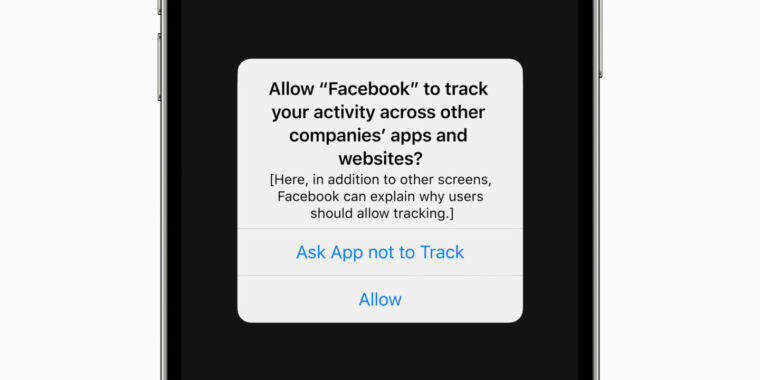
In a post on its developer portal, Apple described a number of new changes to its App Store Review Guidelines – including the requirement that developers apply for user acceptance to track users with IDFA device identifiers (ID for advertisers) ).
This specific change is expected soon; Apple has announced that it will come with iOS 14.5 in “early spring” and has posted a support page dedicated just to that issue. Apple has developer APIs, called application tracking transparency APIs, to manage these required prompts.
This is not the only change in the App Store’s review guidelines, of course. Among other things, Apple “clarified the ban on promoting certain substances”. The guidelines state that applications should not “encourage consumption” of tobacco and steam products, illegal drugs or “excessive amounts of alcohol”.
In addition, “facilitating the sale of” marijuana or tobacco is not allowed, and controlled substances can only be sold through applications belonging to licensed pharmacies.
Apple has also included a more explicit requirement that application developers submit a detailed and accurate privacy sheet with application submissions, as well as maintain and update application descriptions, screenshots, privacy information, and so on. , along with the “new versions” of the app.
Many reports have pointed out that the new privacy sheets similar to nutrition labels that have been with apps on the App Store since the launch of iOS 14 are not always accurate. It is not clear how much this change will help with this concern.
The guidelines state that gift cards, certificates, vouchers, coupons and tips for developers must be made through Apple’s payment system.
Also notable is the additional clarification of Apple’s App Store policy for game streaming services like Google’s Stadia or Microsoft’s cloud gaming component of Game Pass. There is no important new information here, however; Apple just adjusted the language. As was known, these services may still exist on the App Store, provided that they list each game as its own title on the App Store for review, and “must be designed to avoid duplicate payment by a subscriber and should not harm non-subscriber customers.”
Both Google and Microsoft have chosen to offer their game streaming services entirely through the mobile web browser on iOS and iPadOS to get around these restrictions.
These updates to the App Store Review Guidelines have generated considerable controversy for Apple in this regard. The company faced a feud with Epic Games, a major maker of games and game development tools, over its profit share, as well as a public relations fiasco about the same issue, but with a smaller (but still notable) developer. ) called Basecamp.
In response to these controversies, Apple pledged more transparency, adjusted its revenue sharing model, adjusted some of its guidelines and created new feedback channels for developers to raise complaints about these guidelines.
And there is an ongoing battle between Apple and Facebook over the IDFA tracking change mentioned above. Facebook CEO Mark Zuckerberg said the move poses a serious threat to Facebook’s business and, by extension, the survival of several small businesses dependent on Facebook. He also said that Apple’s policy represents a general problem with anti-competitive behavior, and a report indicated that Zuckerberg may be preparing a major lawsuit to challenge Apple in its App Store policies, among other things.
For his part, Apple CEO Tim Cook delivered a speech last week criticizing Facebook’s business model (which relies on trackers like IDFA) as a source of division and violence.
